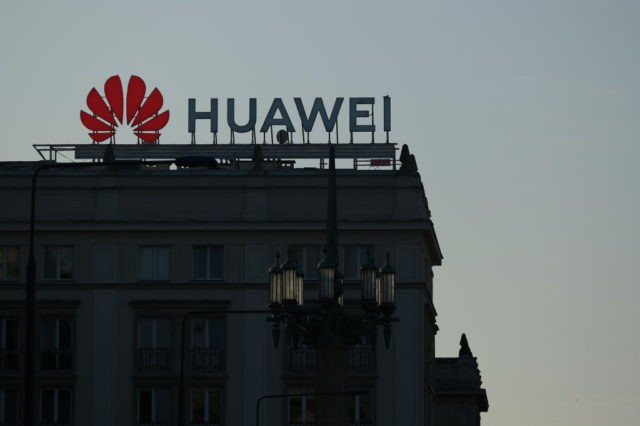China’s Huawei telecom giant on Friday announced plans to build the world’s largest artificial intelligence (AI) computing platform.
The company said it would use the system to design computer chipsets that can compete with top global providers such as Intel.
China’s state-run Global Times described the plan as a fusion of two powerful recent technologies that could insulate help to insulate Huawei from U.S. sanctions by making the Chinese company less dependent on chips from Western providers:
The Chinese company launched Atlas 900 in September to help make AI more readily available for different fields of scientific research and business innovation. The cluster is powered by its self-developed chipsets Kunpeng and Ascend processors, competing with Intel’s dominant X86 architecture.
Huawei, which has been under the US-led crackdown over the past year, has been increasing its investment in self-developed technologies, especially chipsets, which could be used in full-scale scenarios ranging from servers and base stations, to smartphones, PCs, and AI domains.
“We hope to offer the world a new choice,” Hou Jinlong, president of Huawei’s Cloud and AI Products and Services, told the Global Times during the launch in Shenzhen on Friday.
The chipset, Kunpeng 920, used in the Cloud Brain AI computing, is expected to be faster than the X86, with 30 percent lower energy consumption, the company said.
Our generation has grown up using Intel and NVIDIA technologies, Hou said, expressing hope that the Chinese company’s self-developed chipsets will become the new fundamental architecture for AI computing worldwide.
The Pengcheng laboratory is located in Shenzhen, a Chinese tech hub that happens to be the closest Chinese city to Hong Kong. The Chinese government has been attempting to build up Shenzhen as an alternative to Hong Kong, a “better place” than the defiant island city.
China is angling for a leadership role in AI research, a position from which it would be able to set many of the rules and standards for the development of next-generation technology, including its military applications. Western analysts are concerned the Chinese are pulling ahead in AI development, aided in part by the enormous databases of information they have no compunctions about compiling from their own citizens (and those of other countries) to feed hungry AI systems in their research-laboratory cradles.
The Ascend processor mentioned by the Global Times was rolled out by Huawei in August. It is believed to be the most powerful AI processor at the moment. Huawei developed an AI programming system called MindSpore to go along with the Ascend chips, creating a development environment the company claims is at least 50 percent more efficient than alternative products.

COMMENTS
Please let us know if you're having issues with commenting.